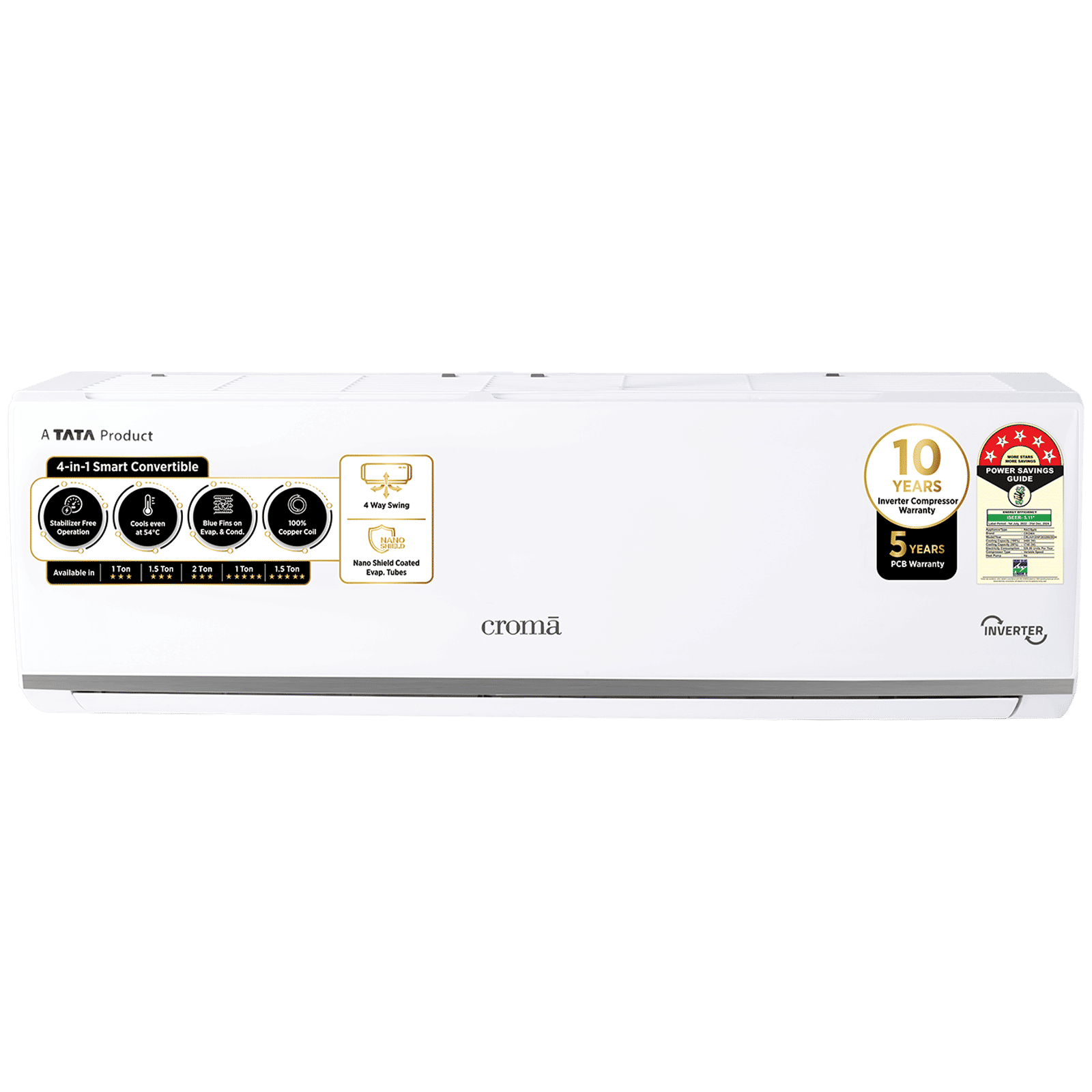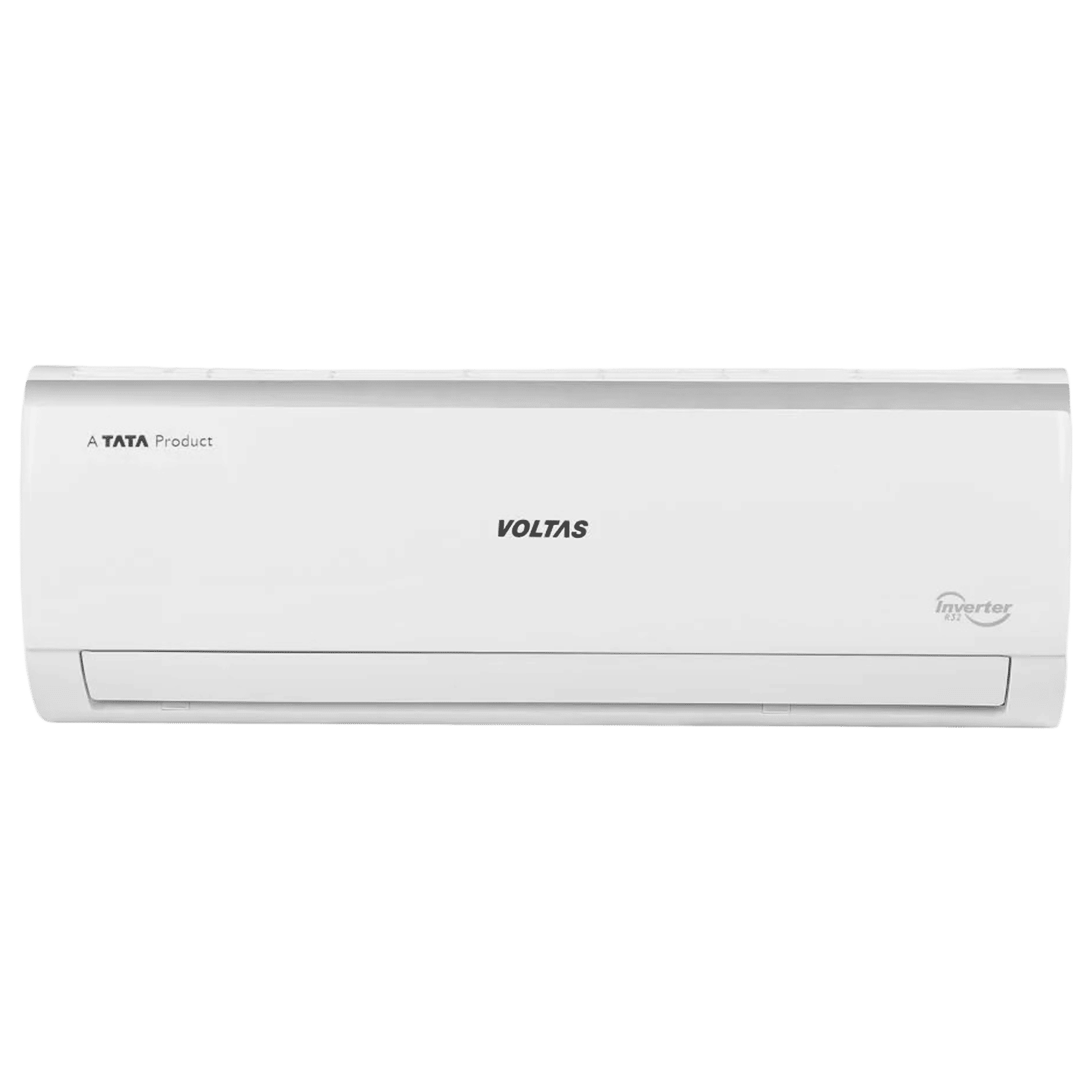ACs play a critical role in keeping both us, and our homes cool during the summers. While there are a number of different types of ACs, whether split or window, smart or non-smart ACs, perhaps one of the biggest differentiations is whether they are inverter, or non-inverter ACs.
Now, it is a known fact that ACs are one of the biggest contributors to electricity bills these days. There is a big difference between the two, and understanding this difference makes all the difference in one’s electricity bills.
So we thought we’d put together this little guide to help you understand the same.
Inverter ACs v/s Non-Inverter ACs
Let’s dive into the basic idea of how inverter ACs differ from non-inverter ACs.
Think of your AC as a smart appliance that is aware of when to decrease and increase the temperature. Inverter ACs do not just work on a simple on-or-off mechanism. They also work in a way such that they adjust the cooling according to the temperature of the room.
Non-inverter ACs on the other hand, work on a simple on-and-off mechanism. They turn on to cool the room, and once the job is done, they turn off.
Energy efficiency
Inverter ACs
Energy efficiency is where inverter ACs shine, since they modify their own temperature based on the room’s temperature. As a result of which, they also consume only as much electricity as is required, and no more.
Non-Inverter ACs
Non-inverter ACs use a lot of energy at once, owing to the fact that they have to start and stop again and again, based on a room’s temperature.
Products in focus
Temperature control
Inverter ACs
Some of you may not like your rooms to be too cold, or too hot. You may like it to be just so. If so, inverter ACs are the perfect choice. They can maintain a constant temperature as per your liking, by adjusting their cooling at regular intervals of time.
Non-Inverter ACs
Non-inverter ACs stick to a constant temperature, regardless of the temperature of the room. This may lead to sudden shifts in room temperature, and may not be ideal for everyone.
Lifespan
Inverter ACs
Owing to the fact that they don’t work on a simple on-or-off mechanism, Inverter ACs run efficiently by design. While the average may not pay much attention to the same, it greatly helps contribute to the ACs longevity.
Non-Inverter ACs
Non-inverter ACs on the other hand, owing to the fact that they have to frequently start or stop, undergo greater strain. This subsequently causes more wear and tear, and shortens their lifespan.
Initial costs
Inverter ACs
Inverter ACs typically cost higher than non-inverter models. However, the long-term savings they provide owing to the fact that they consume less electricity also ensures they compensate for their cost, making them a more value-for-money choice.
Non-Inverter ACs
Non-inverter ACs are usually less expensive to buy. However, their higher electricity consumption does make them significantly more expensive to operate.
Impact on the environment
Inverter ACs
Inverter ACs’ more energy-efficient operation, in addition to helping one save money on electricity bills, also makes them a much more eco-friendly option.
Non-Inverter ACs
Non-inverter ACs’ higher power consumption contributes to increased electricity bills, and also means a larger carbon footprint for your homes. In case you’re looking to do your bit for the environment then, an inverter AC is a better choice.
ALSO READ: Inverter AC or 5-star AC: What is better?
At the end of the day, choosing between an inverter and a non-inverter AC depends purely on one’s preferences. If one prefers powerful performance, constant temperatures, and long-term savings, inverter ACs are the one for them. On the other hand, if the higher costs associated with purchasing an inverter AC is a problem, and you do not mind the occasional temperature fluctuation, a non-inverter ACs works just as well.
Unleash your inner geek with Croma Unboxed
Subscribe now to stay ahead with the latest articles and updates
You are almost there
Enter your details to subscribe

Happiness unboxed!
Thank you for subscribing to our blog.
Disclaimer: This post as well as the layout and design on this website are protected under Indian intellectual property laws, including the Copyright Act, 1957 and the Trade Marks Act, 1999 and is the property of Infiniti Retail Limited (Croma). Using, copying (in full or in part), adapting or altering this post or any other material from Croma’s website is expressly prohibited without prior written permission from Croma. For permission to use the content on the Croma’s website, please connect on contactunboxed@croma.com
- Related articles
- Popular articles
















Alfred Dmello
Agree technician advice non inverter as easy to repair and maintenance. Guess inverter is more electronic so ac technician find it hard to repair and that’s why recommend the old non inverter ones.
raj kumar
Non inverter ac the best. Recommend by all ac technicians. Easy to repair. Less no of error codes. In the long run, easy to maintain.